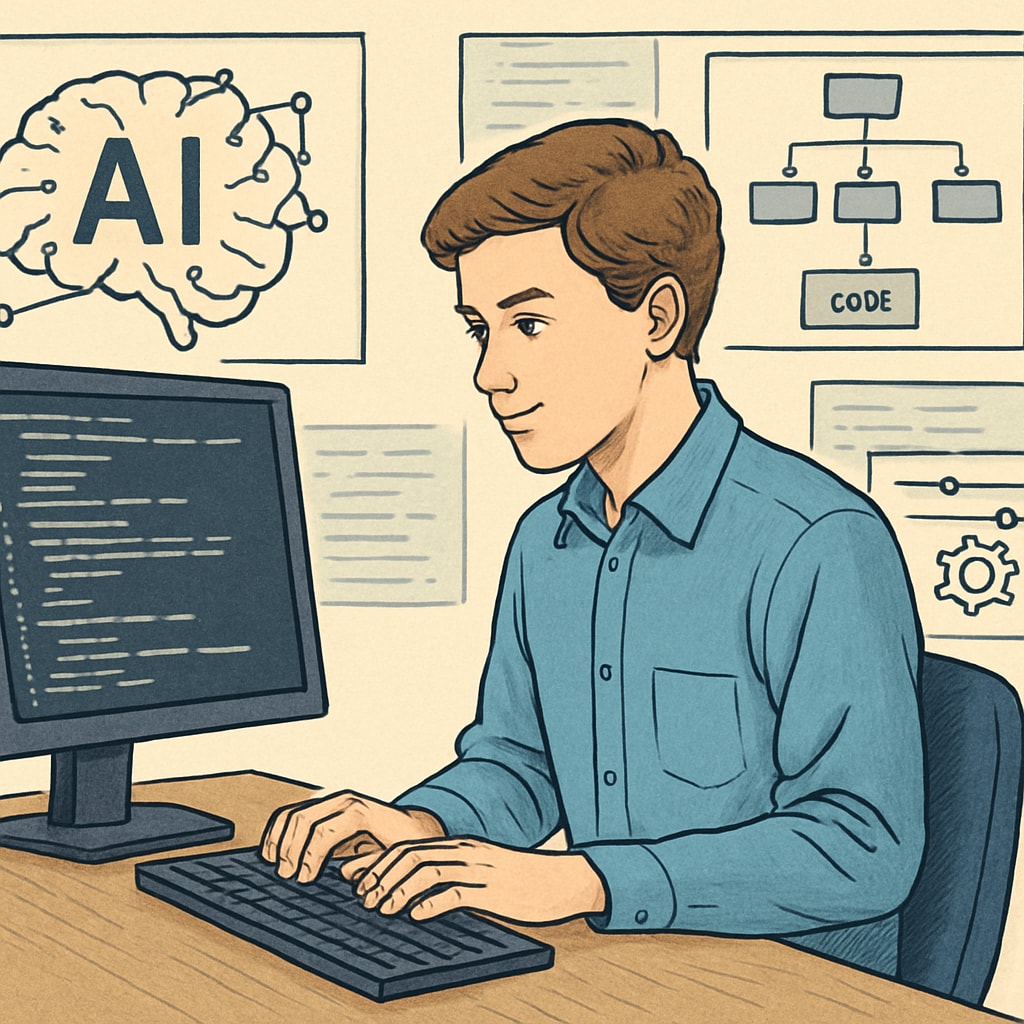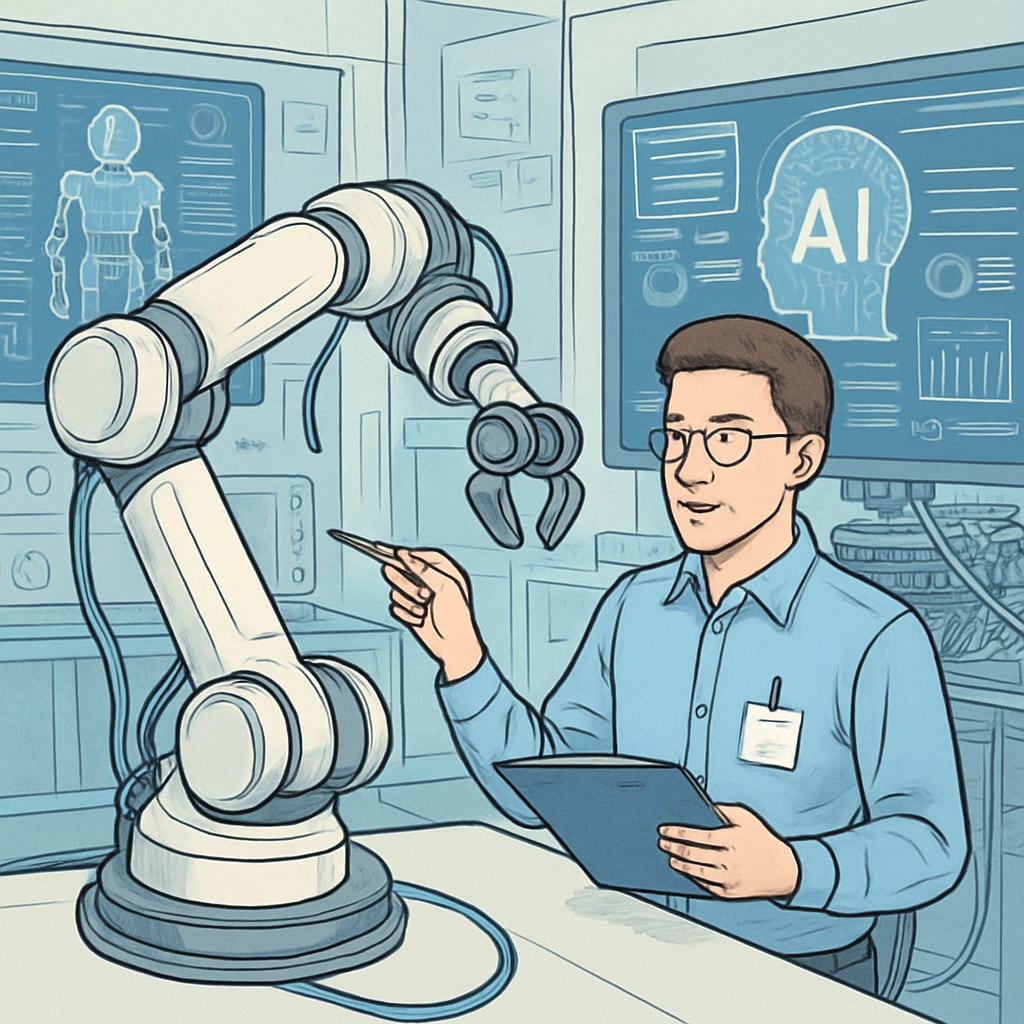As artificial intelligence (AI) continues to reshape industries, many teenagers are grappling with career choices, especially between becoming a programmer or an engineer. This dilemma reflects not only the growing influence of AI but also the uncertainty over the future of these professions. How should young minds plan their career paths in an increasingly AI-driven world? Let’s explore these challenges and the ways to navigate them effectively.
Understanding the Programmer’s Role in the AI Era
Programmers are often seen as the architects of software and applications, responsible for writing, testing, and maintaining code. In the AI era, their work has expanded to include developing algorithms that enable machines to learn and adapt. For instance, programming languages such as Python and frameworks like TensorFlow are crucial tools for AI development.
However, the rise of AI has introduced automation into programming itself. Tools powered by AI can now generate code, optimize workflows, and even debug programs. While this doesn’t eliminate the need for human programmers, it raises questions about how their roles will evolve. Teenagers considering this career must be prepared to adapt to such changes by focusing on continuous learning and creativity.

Engineering in the AI Age: Opportunities and Adaptability
Engineers, on the other hand, work on designing, building, and maintaining physical systems and structures. In the AI age, their roles are becoming increasingly intertwined with advanced technology. For example, mechanical engineers are integrating AI into robotics, while civil engineers are using AI to optimize construction processes and materials.
AI-driven tools are enhancing the efficiency of engineering tasks, but they also require engineers to develop interdisciplinary skills. For teenagers interested in engineering, this means embracing both technical expertise and a strong understanding of AI applications. Careers like mechatronics engineering, which combines mechanical, electronic, and AI systems, are gaining popularity as a result.

How to Prepare for the Future: Tips for Teenagers
Whether pursuing programming or engineering, teenagers must equip themselves with skills that future-proof their careers. Here are some practical steps:
- Develop a strong foundation: Focus on STEM (science, technology, engineering, and mathematics) subjects in school to build essential skills for both fields.
- Learn AI fundamentals: Take online courses or participate in workshops to understand the basics of AI, machine learning, and data science.
- Stay curious and adaptable: The technology landscape is constantly evolving. Cultivate a mindset of lifelong learning to stay ahead.
- Engage in extracurricular activities: Join coding clubs, robotics teams, or engineering competitions to gain practical experience.
- Seek mentorship: Connect with professionals in your chosen field to gain insights and guidance for your career path.
In addition, teenagers should explore internships or project-based learning opportunities to gain hands-on experience. This not only builds confidence but also helps them understand the real-world applications of their chosen career.
Balancing Passion with Practicality
While career choices should align with individual interests and passions, it’s also important to consider practical factors such as job stability, earning potential, and industry trends. Both programming and engineering offer diverse opportunities, but the key is to specialize in areas that are hard to automate and leverage AI as a tool rather than a competitor.
For example, a programmer specializing in AI ethics or a civil engineer focusing on sustainable construction could find rewarding niches in the future job market. By combining passion with a forward-thinking approach, teenagers can carve out successful careers in the AI era.
As a result, the decision between becoming a programmer or an engineer doesn’t have to be a rigid one. Teenagers can explore interdisciplinary paths, such as AI engineering or software development for robotics, which combine the strengths of both fields.
Conclusion: Building a Resilient Career Path
In the AI era, the career choices of programmer and engineer are both promising yet challenging. Teenagers must navigate these options with a clear understanding of their own interests and the evolving job market. By focusing on adaptability, continuous learning, and interdisciplinary skills, they can build a resilient career path that thrives in an AI-driven world.
Ultimately, the key lies in embracing AI as an opportunity rather than a threat. Whether programming the next breakthrough algorithm or engineering innovative solutions, the future is bright for those who dare to prepare.
Readability guidance: The article uses short paragraphs, lists, and transition words to enhance readability. Passive voice and long sentences are minimized to ensure clarity. Key phrases are evenly distributed for SEO optimization.


